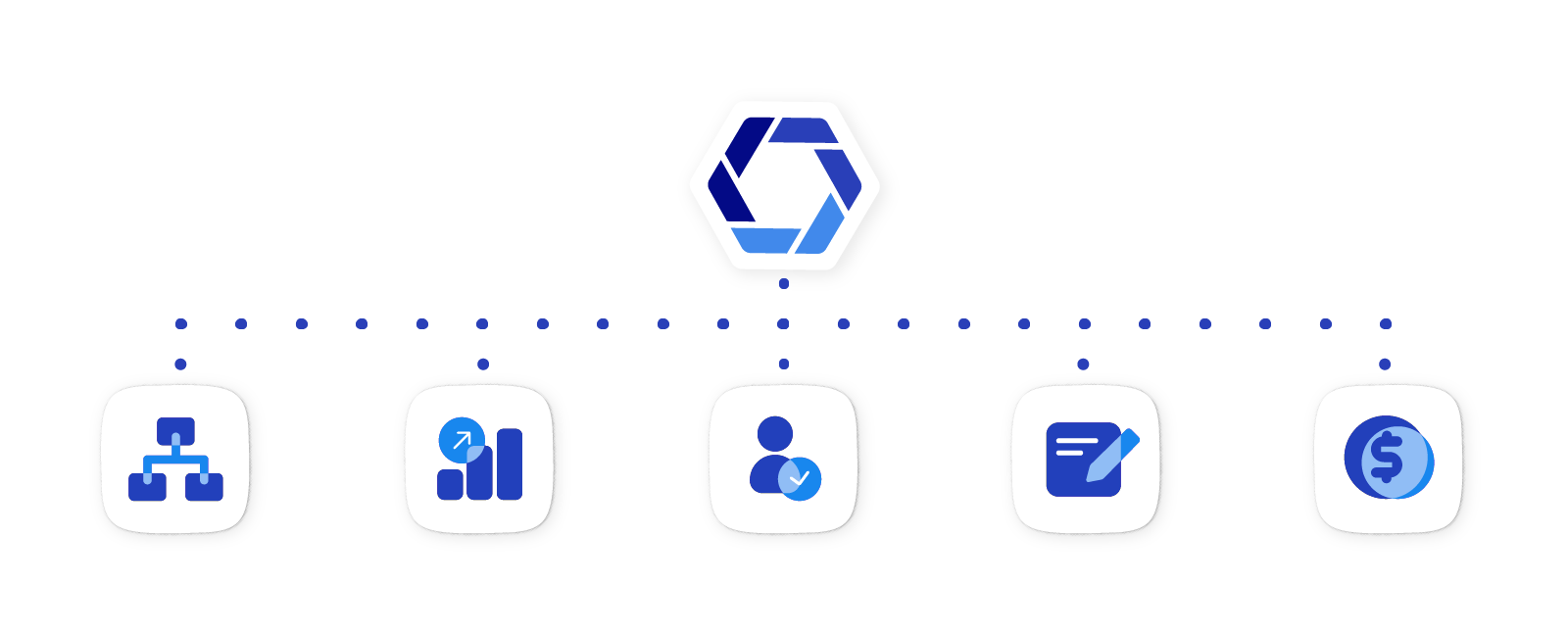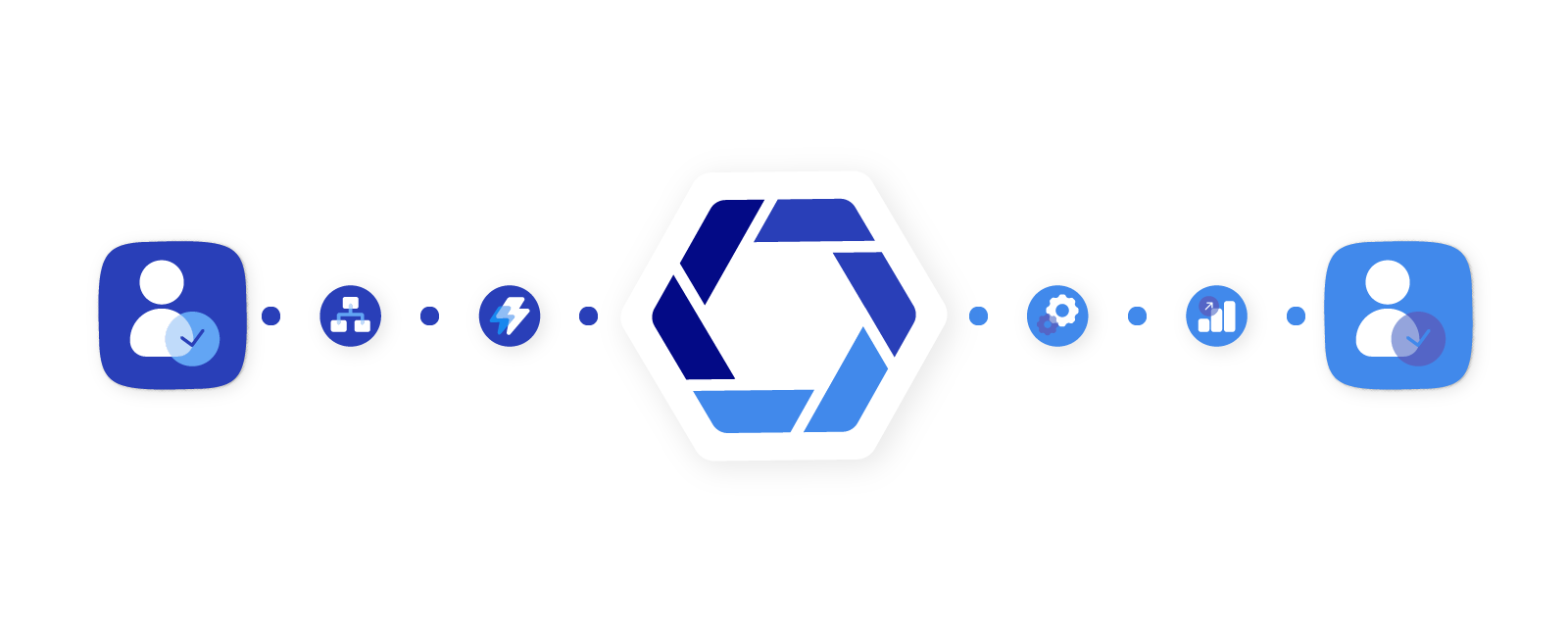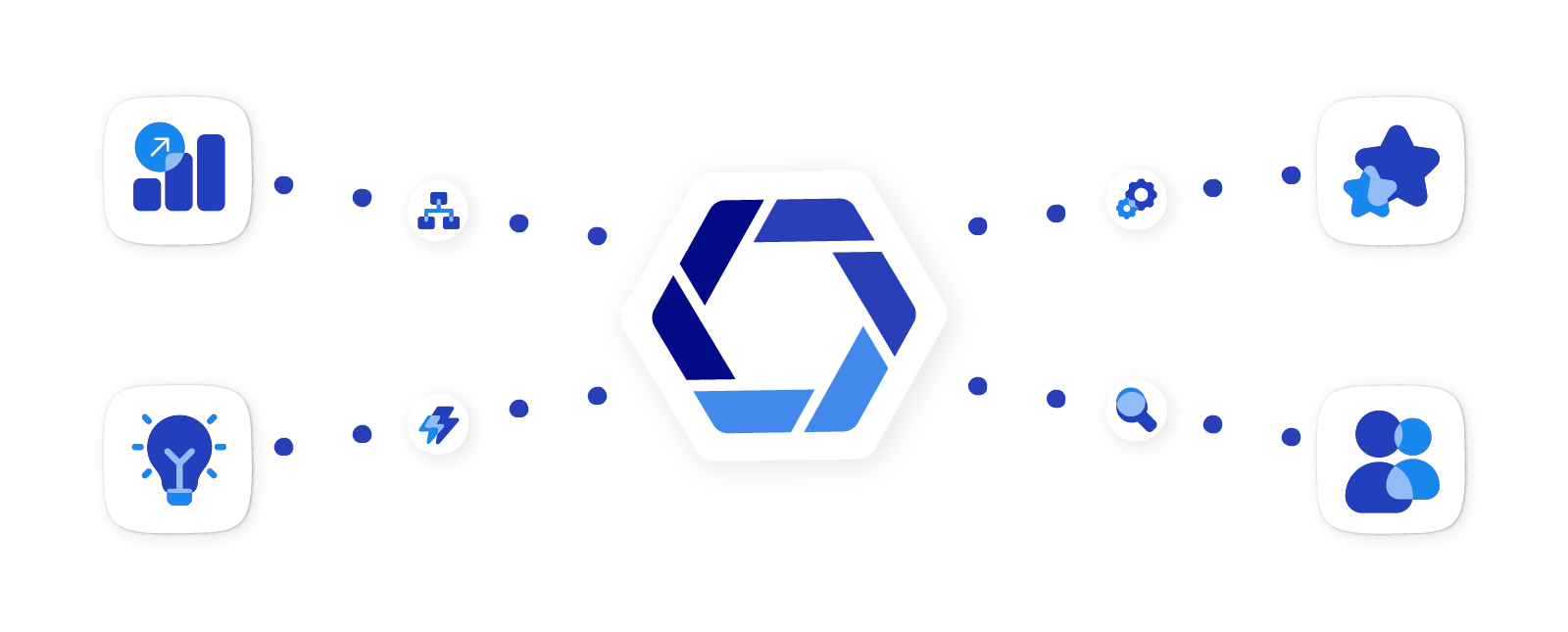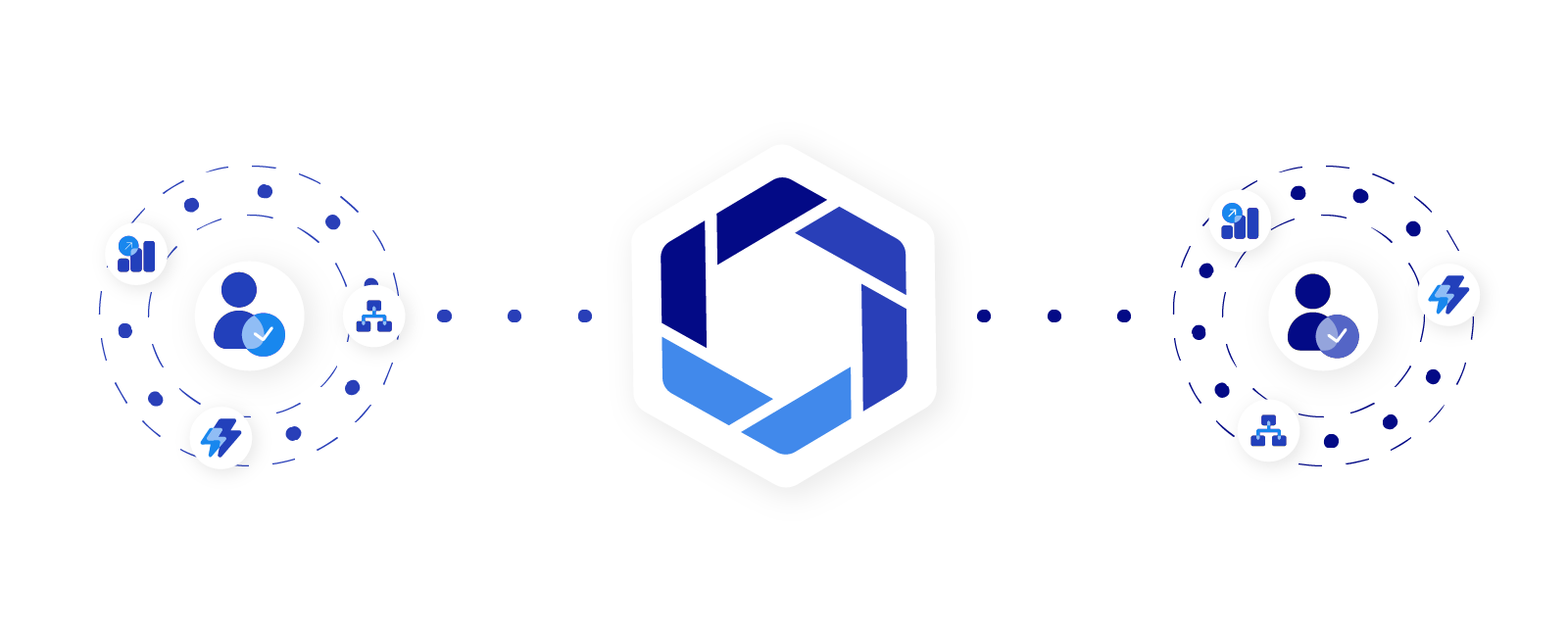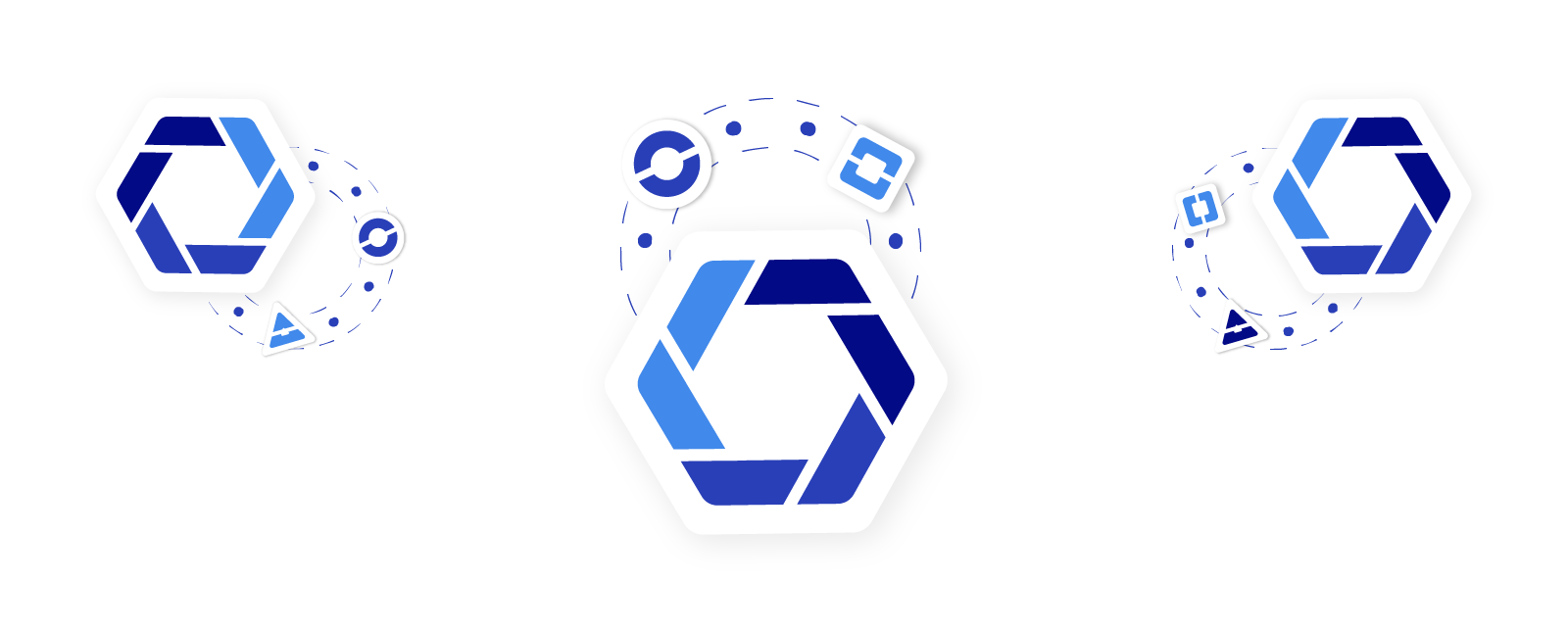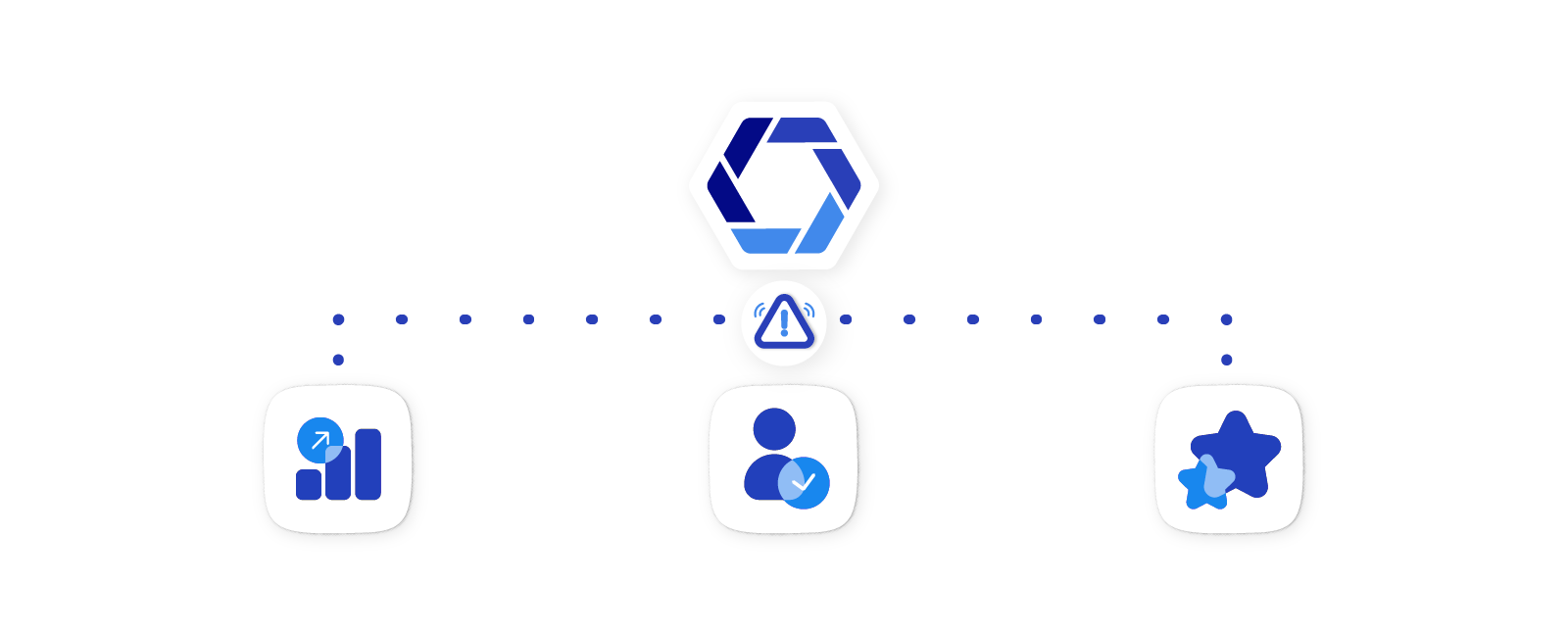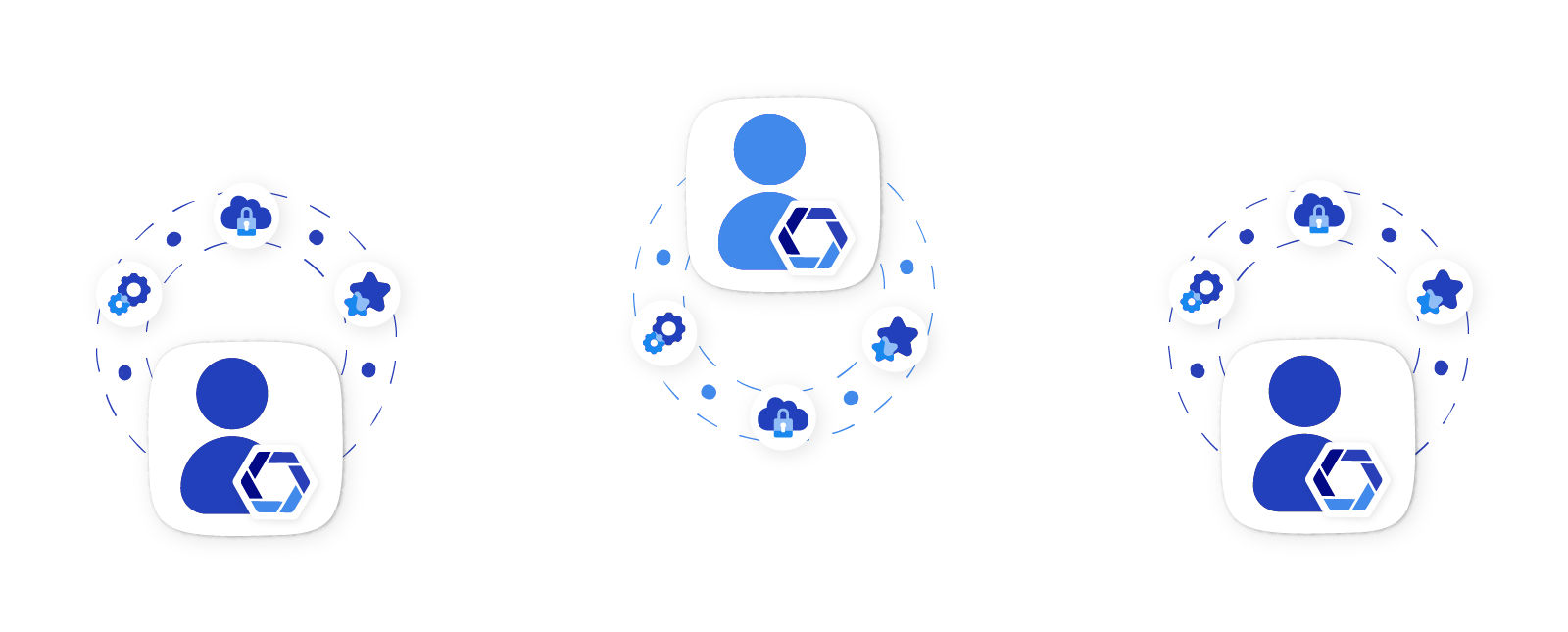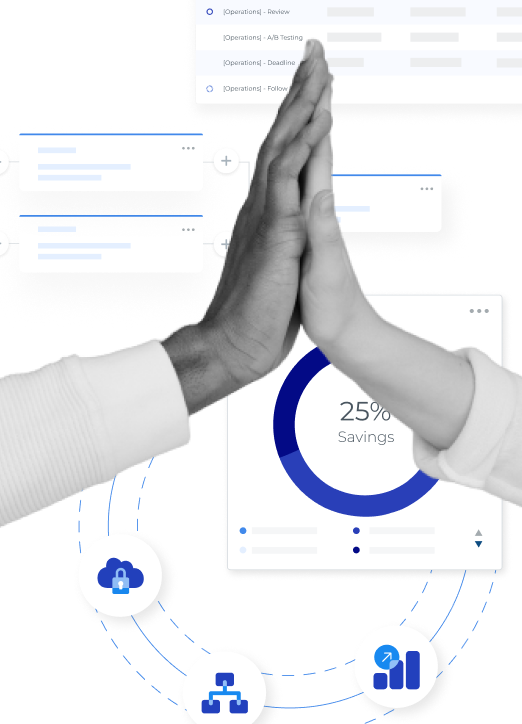The world of human resources (HR) is undergoing a radical transformation as artificial intelligence (AI) continues to make significant strides.
This article will explore how AI is revolutionizing HR, significantly changing human resource management and recruitment. Discover the advantages of AI for HR, its impact on various HR processes, and how organizations can successfully integrate AI into their existing HR strategies to enhance efficiency, decision-making, and long-term success.
How AI for HR Will Change the Way We Work
AI for HR is rapidly gaining momentum as a game-changing force in the industry. With the increasing complexity of HR tasks, the need for intelligent and efficient solutions is more critical than ever.
As AI-powered technologies continue to advance, they offer a myriad of opportunities for HR professionals to streamline processes, reduce manual work, and make data-driven decisions.
The role of AI in transforming HR management is multifaceted. It helps automate repetitive tasks such as payroll processing, benefits administration, and employee documentation. Additionally, it can assist in performance management and employee engagement by analyzing large amounts of data to provide insights and identify trends.
In recruitment, AI is revolutionizing how HR departments find the right talent. By using AI algorithms, companies can quickly sift through countless resumes and online profiles and match the best candidates to job requirements. This not only saves time and resources but also eliminates the potential for unconscious bias, ensuring a more diverse and inclusive workforce.
AI for HR solutions go beyond simplifying processes; they can also create customized strategies for employee engagement, retention, and workforce planning. By harnessing the power of AI, companies can make informed decisions that lead to increased productivity, employee satisfaction, and talent retention.
Thus, the growing importance of AI for HR in the industry cannot be overstated. It is transforming human resource management, recruitment, and solutions and enabling businesses to operate more efficiently and develop a thriving workforce.
Using AI for Human Resource Management
AI has the potential to revolutionize various HR tasks, including onboarding, training, and performance management, streamlining and optimizing these processes to significantly improve efficiency and effectiveness in HR departments.
In onboarding, AI can automate tasks such as sending out offer letters, collecting required documentation, and setting up employee profiles, while AI-driven chatbots can answer employee questions in real-time. It can even analyze employee data to create personalized onboarding plans to ensure a smooth and engaging transition for new hires.
Regarding training, AI can customize programs based on individual employee needs, preferences, and learning styles, using performance data, skills, and knowledge gaps to recommend tailored learning paths, resources, and support.
AI-powered learning management systems can track employee progress, provide real-time feedback, and adapt the training content as needed to maximize learning outcomes.
In performance management, AI supports HR professionals by providing data-driven insights into employee performance trends, strengths, and areas for improvement. By analyzing employee engagement data, communication patterns, and goal achievements, it can help identify high performers, potential leaders, and employees who may require additional support.
AI also aids in setting data-driven, achievable goals for employees to foster continuous improvement and development.
By leveraging AI’s capabilities in these HR tasks, companies can enhance their human resource management and enable HR professionals to focus on higher-value strategic activities while improving employee satisfaction and productivity.
The Benefits of AI for HR & Recruitment
The integration of AI in HR and recruitment is transforming how businesses manage their talent acquisition and human resources processes. Here are several benefits this cutting-edge technology offers, from improved efficiency and data-driven decision-making to a more diverse and inclusive workforce.
Improved Efficiency
Improved efficiency is a significant benefit of implementing AI in HR and recruitment processes. By automating repetitive and time-consuming tasks, AI allows HR professionals to focus on more strategic and value-added activities.
For instance, AI-powered systems can quickly sift through large volumes of resumes, accurately matching candidates to job requirements and prioritizing the most suitable applicants. This not only speeds up the recruitment process but also reduces the risk of overlooking potential talent.
Additionally, AI can streamline various HR tasks such as onboarding, training, and performance management. From automating the collection of required documentation and creating personalized onboarding plans to developing customized training programs and setting data-driven performance goals, it plays a crucial role in enhancing the overall efficiency of HR departments.
Moreover, AI-driven analytics and reporting provide real-time insights into workforce trends and performance, enabling HR professionals to make informed decisions swiftly. By reducing the time spent on manual tasks and data analysis, AI empowers HR departments to operate more efficiently and contribute to the organization’s overall productivity and success.
Reduced Bias
Another noteworthy benefit of AI in HR and recruitment processes is reduced bias.
Human decision-making in hiring and promotions can be influenced by unconscious biases, which may lead to discrimination and a lack of diversity in the workforce. AI, when designed and programmed responsibly, can help minimize these biases and promote more equitable hiring practices.
AI-powered recruitment systems can assess candidates based on objective criteria, such as skills, qualifications, and experience, without being influenced by factors such as age, gender, or ethnicity. By eliminating the potential for human bias, AI ensures that candidates are evaluated fairly and solely on their merits, leading to a more diverse and inclusive workforce.
Furthermore, AI can assist in reducing bias during performance evaluations and promotions by analyzing data-driven metrics, focusing on employee achievements, and identifying areas for improvement.
This objective approach prevents potential favoritism or unconscious bias from influencing the evaluation process and ensures employees are recognized and rewarded based on their performance.
Better Decision-Making
Better decision-making is a crucial benefit of implementing AI in HR and recruitment. With the ability to analyze vast amounts of data quickly and accurately, AI provides HR professionals with valuable insights that can significantly enhance their decision-making capabilities.
In recruitment, AI algorithms can identify patterns and trends among successful candidates, allowing HR teams to refine their search criteria and improve their selection process. By providing a data-driven foundation for decision-making, AI helps HR professionals make more informed choices, leading to better hires and a stronger workforce.
In human resource management, AI-driven analytics can uncover insights into employee performance, engagement, and satisfaction.
They can identify areas of strength and weakness so HR professionals can develop targeted strategies for talent development, retention, and workforce planning. AI can also help predict potential turnover risks, allowing HR teams to address any issues and retain valuable employees proactively.
Moreover, AI can support better decision-making in compensation and benefits by analyzing market trends, employee preferences, and organizational goals to recommend competitive and cost-effective packages.
Increased Employee Satisfaction
AI in HR and recruitment processes can also lead to increased employee satisfaction. By streamlining various tasks, reducing bias, and supporting better decision-making, it can significantly contribute to a positive work environment and an engaged workforce.
AI-driven recruitment systems help ensure new hires are well-suited for their roles and possess the necessary skills and experience. When employees are well-matched to their positions, they are more likely to feel fulfilled and motivated, leading to higher job satisfaction.
In human resource management, AI can assist in creating personalized development plans, customized training programs, and targeted performance goals, catering to individual employees’ needs and aspirations. This tailored approach fosters personal growth and achievement, which increases employee satisfaction.
AI can also help identify and address potential issues affecting employee engagement and well-being, such as workload imbalances, communication breakdowns, or inadequate support systems. Proactively resolving these issues contributes to a healthier work environment where employees feel valued and supported.
Moreover, reducing bias in hiring, performance evaluations, and promotions through AI ensures a fair and inclusive workplace. When employees perceive that they are treated equitably and have equal opportunities to grow and succeed, their satisfaction and commitment to the organization will likely increase.
Talent Retention
As companies increasingly recognize the importance of retaining top talent for long-term success, AI can offer valuable insights and strategies to help organizations achieve talent retention.
AI-driven recruitment systems contribute to talent retention by identifying candidates who are not only well-suited for their roles but also more likely to stay with the company long-term. By evaluating cultural fit, career goals, and values, AI helps HR professionals select candidates who align with the organization’s vision and values, reducing employee turnover.
In human resource management, AI can analyze employee data to identify patterns and trends associated with employee engagement and satisfaction.
By identifying the key drivers of employee retention, HR professionals can develop targeted strategies to address these factors, such as offering competitive compensation packages, providing growth opportunities, and fostering a supportive work environment.
AI can also help predict potential turnover risks by analyzing job satisfaction, performance, and employee sentiment. With this information, HR teams can proactively address concerns and implement retention strategies to prevent valuable employees from leaving the organization.
Furthermore, AI’s ability to reduce bias and promote a fair and inclusive workplace contributes to talent retention. When employees feel treated equitably and have equal opportunities to grow and succeed, they are more likely to remain committed to the organization.
HR Solutions Powered by AI
The growing influence of AI in human resources is ushering in a new era of innovative, customized HR solutions that address the specific needs and challenges organizations face. Here is how AI-driven technologies can enhance various aspects of HR, from employee engagement strategies to workforce planning.
Employee Engagement Strategies
AI can play a pivotal role in creating effective employee engagement strategies by analyzing vast amounts of data to identify patterns, trends, and insights that inform targeted initiatives.
One way AI contributes to employee engagement is through personalized communication, with AI-driven chatbots and messaging platforms facilitating real-time interaction and support.
Additionally, it can analyze employee performance data, skills, and career aspirations to create personalized learning and development plans, helping employees feel more engaged and invested in their professional growth.
By examining job satisfaction, work-life balance, and recognition, AI can determine the key drivers of employee engagement in the organization so HR professionals can design targeted strategies that address these critical aspects.
AI-powered sentiment analysis tools can monitor employee feedback and satisfaction levels in real time, allowing HR teams to quickly identify and address potential issues affecting engagement and promoting a proactive approach to fostering a positive work environment. <
Furthermore, AI’s predictive analytics capabilities can detect potential disengagement risks by analyzing performance, workload, and communication patterns and empower HR professionals to implement preemptive measures to prevent employee disengagement.
Workforce Planning
AI can significantly enhance workforce planning by providing valuable insights, predictive analytics, and data-driven recommendations, enabling organizations to optimize their talent management and prepare for future needs.
Firstly, it contributes to workforce planning through skills gap analysis, where it can identify current and potential gaps by analyzing employee skills, capabilities, and performance data. This information allows HR professionals to develop targeted learning and development initiatives to align the workforce with strategic goals.
Moreover, AI can help predict future workforce needs by analyzing market trends, economic indicators, and historical data, enabling organizations to make informed decisions regarding hiring, training, and talent development.
It can also identify high-potential employees by analyzing performance, engagement, and growth potential to assist HR professionals in developing succession plans, leadership programs, and targeted retention strategies.
AI’s ability to optimize workforce allocation by analyzing data on employee skills, availability, and workload ensures that projects and tasks are staffed with the most suitable employees, maximizing productivity and effectiveness.
Additionally, AI can predict potential turnover risks by analyzing job satisfaction, employee engagement, and performance trends, empowering HR professionals to proactively address issues and implement retention strategies to maintain a stable and skilled workforce.
Leading AI Tools for HR Recruitment
There are several AI tools available in the market that can significantly improve HR recruitment processes. Some popular examples include:
HireVue
HireVue is an AI-powered video interviewing platform that streamlines the interview process and offers predictive analytics to identify the best candidates. It uses natural language processing and machine learning algorithms to assess candidates’ speech, facial expressions, and other factors and provide insights into their suitability for a role.
Pymetrics
Pymetrics is an AI-based recruitment platform using neuroscience-based assessments and machine learning to match candidates with suitable job roles. It helps organizations reduce bias in the hiring process and create a more diverse workforce by focusing on candidates’ cognitive and emotional traits instead of their resumes.
Textio
Textio is an AI-driven writing platform that helps HR professionals create more effective and inclusive job descriptions. By analyzing language patterns and providing real-time feedback, Textio enables companies to attract a more diverse and qualified candidate pool.
Entelo
Entelo is an AI-powered recruitment platform that uses predictive analytics to identify passive candidates more likely to be interested in new opportunities. It analyzes career trajectory, skills, and social media activity to recommend the most suitable candidates, which allows HR professionals to streamline their sourcing efforts.
Eightfold
Eightfold is an AI-driven talent intelligence platform that helps companies find, engage, and retain top talent. It uses deep learning algorithms to match candidates with job roles, predict their potential, and recommend personalized career paths for a more efficient and targeted recruitment process.
These are just a few AI tools that can revolutionize HR recruitment by automating time-consuming tasks, reducing bias, and providing data-driven insights to enhance decision-making and efficiency.
Implementing AI in Your HR Processes
Successfully integrating AI into existing HR processes requires careful planning, consideration of potential challenges, and close collaboration between HR professionals and AI experts. Begin by identifying areas where AI can have the most significant impact, such as recruitment, performance management, or employee engagement.
Conduct a thorough evaluation of available AI tools and platforms, focusing on their features, compatibility with existing systems, and potential ROI. Engaging key stakeholders in the decision-making and gathering feedback is essential to ensure the chosen solution aligns with the organization’s objectives.
Develop a detailed implementation plan that includes timelines, resource allocation, and milestones while considering potential challenges, such as resistance to change, data privacy concerns, and potential biases in AI algorithms.
Address these challenges proactively by providing comprehensive training to HR professionals and other staff members who will be using the AI tools and ensuring they clearly understand the technology’s benefits and limitations. Establish open communication and feedback channels to address any concerns, challenges, or suggestions for improvement.
Collaboration between HR professionals and AI experts is crucial to ensure the AI solution is tailored to the organization’s needs and delivers the desired results. AI experts can provide insights into the technology’s capabilities, help customize the solution, and support continuous optimization of the AI system.
HR professionals, on the other hand, can contribute their domain knowledge and understanding of the organization’s culture and goals to ensure the AI solution is effectively integrated and aligned with strategic objectives.
Monitor the AI system’s performance and impact on HR processes and make adjustments as necessary to optimize results. Regularly review the solution’s effectiveness by tracking relevant metrics and conducting employee surveys to gauge satisfaction and engagement.
Staying informed about advancements in AI technology and evolving best practices is also essential, allowing for timely updates to the system to maintain its effectiveness and relevance.
Embracing the AI Revolution in HR
The use of AI for HR offers numerous advantages, transforming human resource management, recruitment, and solutions by streamlining tasks, reducing biases, and enhancing decision-making.
AI’s ability to analyze vast amounts of data and provide actionable insights can lead to more efficient processes, improved employee satisfaction, and better talent retention. AI can also help create customized HR solutions such as employee engagement strategies and workforce planning, ensuring organizations have the right talent to achieve their strategic objectives.
The potential impact of AI on HR is immense, and HR professionals must explore and adopt AI tools to stay competitive in today’s rapidly evolving business landscape. By embracing AI and leveraging its capabilities, they can enhance their processes, drive efficiency, and ultimately support their organization’s long-term success.
Now is the time for HR professionals to seize the opportunities AI presents and harness its power to revolutionize human resource management and drive positive change within their organizations.
Reach out to Kizen today for additional guidance or to explore how our AI-driven solutions can help you optimize human resource management and drive positive change within your organization. Connect with us through our website so that we can schedule a time to chat.


